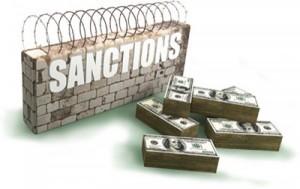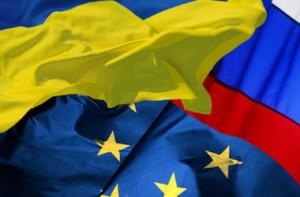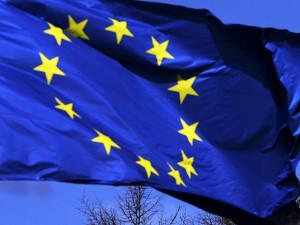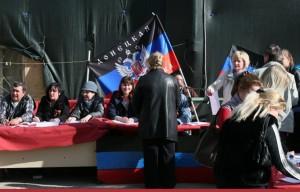EU targets Ukraine separatists but is split on more Russia sanctions
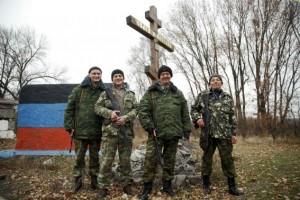
(Reuters) — European Union governments moved to put more Ukrainian separatists under asset freezes and travel bans on Monday but took no action to step up economic sanctions on Russia despite voicing alarm about an upsurge of violence in Ukraine.
EU foreign ministers in Brussels asked officials to put forward names of an unspecified number of pro-Russian separatists to be added to the EU’s sanctions list by the end of the month.
«Sanctions … are an effective tool in a broader strategy,» the EU’s new foreign policy chief, Federica Mogherini, told a news conference, adding that she would visit Kiev as soon as a new government is formed. She said she was open to visiting Moscow «if the conditions are there».
Around 120 Ukrainian and Russian officials are already under EU asset freezes and travel bans.
Tensions between Russia and the West over Ukraine have risen again as a result of a Nov. 2 election by eastern Ukraine separatists, repeated ceasefire violations and NATO’s assertions — denied by Moscow — that Russia has sent tanks and troops to eastern Ukraine in recent days.
The EU foreign ministers called in a statement for «a halt to the continuous violations of the ceasefire, a withdrawal of all illegal and foreign forces, mercenaries and military equipment».
The ministers called on Ukraine to redouble its economic and political reform efforts and urged Russia, Ukraine and the Organisation for Security and Cooperation in Europe (OSCE) to intensify talks.
Mogherini expressed her own readiness to help resolve the crisis. «Russia is part of the problem but is also for sure part of the solution,» Mogherini said.
The former Italian foreign minister also asked ministers to discuss how the EU can re-launch a dialogue with Russia.
Germany’s Foreign Minister Frank-Walter Steinmeier will travel to Kiev and Moscow on Tuesday.
The EU’s 28 member states are deeply divided about imposing more economic sanctions on Russia, the bloc’s main energy supplier, fearing the measures and possible Russian reprisals could hurt their own economies.
Ministers signaled that any discussion of tighter economic sanctions, in addition to measures already taken targeting the finance, energy and defense sectors, would probably have to wait until EU leaders meet in Brussels on Dec. 18 and 19.
Polish Foreign Minister Grzegorz Schetyna said the EU should start preparations now so leaders could quickly take tough sanctions on Russia if Moscow acted aggressively in Ukraine.
EU countries such as the Baltic states, Britain, Poland and Sweden have consistently pushed for tougher sanctions while countries such as Austria, Greece and Cyprus are reluctant.
Читать далее: IPnews
EU adds 13 Ukrainian separatists and five organizations
(Reuters) — European Union governments agreed on Thursday to add 13 Ukrainian separatists and five organizations to theEU unlikely will discuss new steps against Russia today
European Union governments may agree to impose personal sanctions on more Russian-backed rebels on Monday in responseEU agrees to widen Ukraine sanctions but waits on
(Reuters) — EU foreign ministers approved on Monday putting visa bans and asset freezes on more Ukrainian separatistsGerman government: Recognizing vote in east Ukraine is
(Reuters) — German Chancellor Angela Merkel’s spokesman said on Monday Berlin found it incomprehensible that «officialНет комментариев.
Информация
Посетители, находящиеся в группе Гости, не могут оставлять комментарии к данной публикации.
